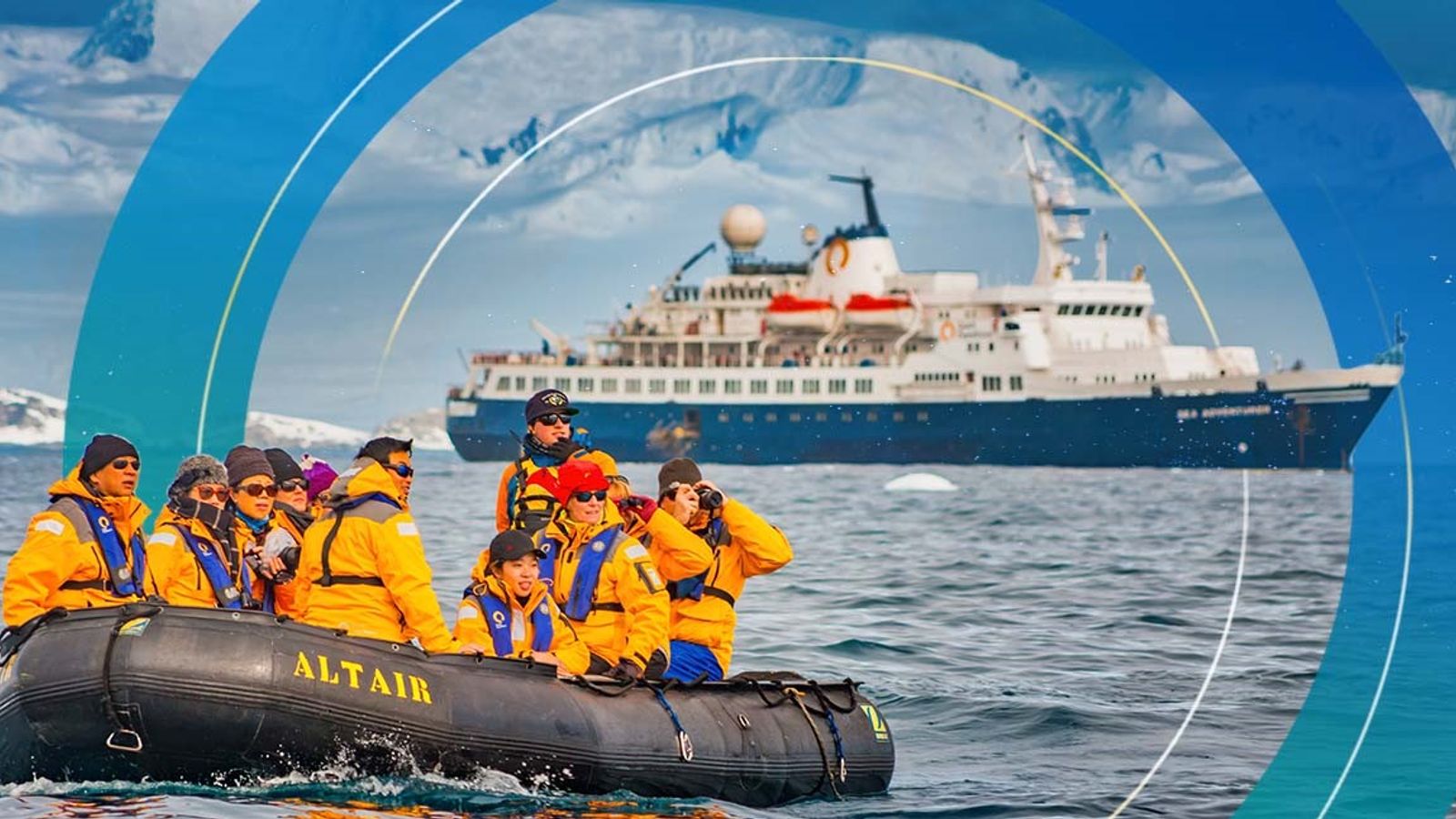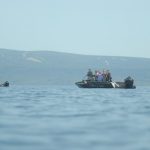Sea creatures from around the world may be endangering the pristine eco-systems of Antarctica by hitchhiking there on ships, scientists have warned.
Mussels, crabs, barnacles and algae are of particular concern because they can easily latch on to vessels’ hulls, researchers from the University of Cambridge and British Antarctic Survey have said.
Their study monitored ship-borne human activities such as research, fishing, tourism and supply and found that, despite the region’s isolation, boats from 1,580 ports around the globe visit Antarctica.
All vessels potentially expose the protected region to invasive, non-native species that threaten the stability of its environment, scientists said.
The species – including mussels, barnacles, crabs and algae – attach themselves to ships’ hulls, in a process termed “biofouling” and could arrive in Antarctic waters from almost anywhere in the world.
‘Biosecurity measures needed’
Lead author Arlie McCarthy, a researcher in the University of Cambridge’s Department of Zoology and British Antarctic Survey, said: “The species that grow on the hull of a ship are determined by where it has been.
Climate change: Scientists embark on two-month mission to explore ‘doomsday’ Thwaites Glacier
Polar Preet: British army officer becomes first person to reach the South Pole on foot in two years
COVID-19: Antarctica research station battling coronavirus outbreak
“We found that fishing boats operating in Antarctic waters visit quite a restricted network of ports, but the tourist and supply ships travel across the world.
“We were surprised to find that Antarctica is much more globally connected than was previously thought.
“Our results show that biosecurity measures need to be implemented at a wider range of locations than they currently are.
“There are strict regulations in place for preventing non-native species getting into Antarctica, but the success of these relies on having the information to inform management decisions.
“We hope our findings will improve the ability to detect invasive species before they become a problem.”
More from Sky News
Scientists embark on two-month mission to explore ‘doomsday’ glacier
2021: A year of some of the most extreme weather ever seen
Last seven years were ‘warmest on record’
Professor David Aldridge from the University of Cambridge told the Independent the region “needs to be protected from such marine invasions, as Antarctica’s native species have been isolated for the last 15-30 million years”.
The study found that of all the human ship-borne activities, tourism – even though it is regulated in the region – contributes to 67% of visits to Antarctica.
This is followed by research (21%) and fishing (7%).
The study is published in the journal Proceedings of the National Academy of Sciences (PNAS).
Watch the Daily Climate Show at 8.30pm Monday to Friday on Sky News, the Sky News website and app, on YouTube and Twitter.
The show investigates how global warming is changing our landscape and highlights solutions to the crisis.






















